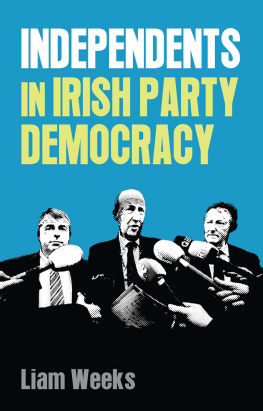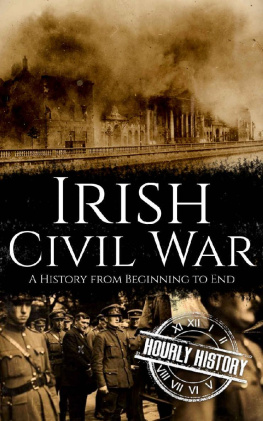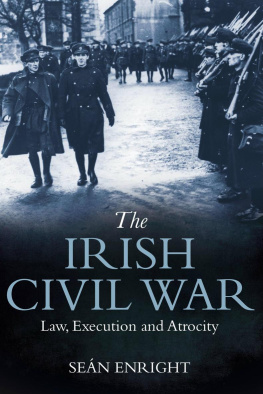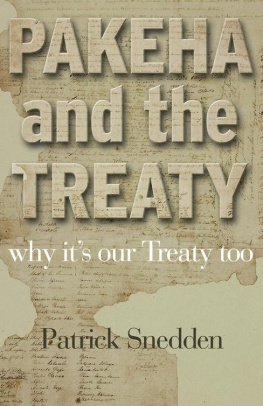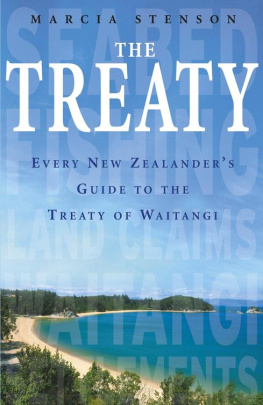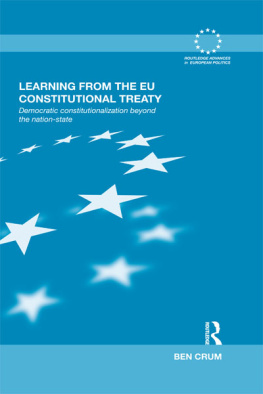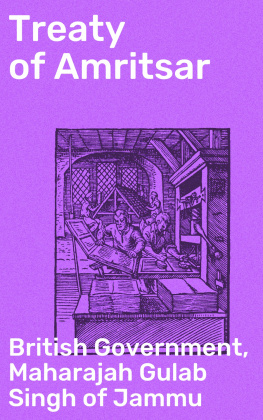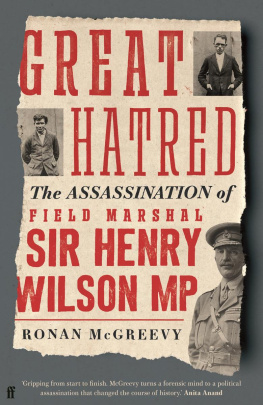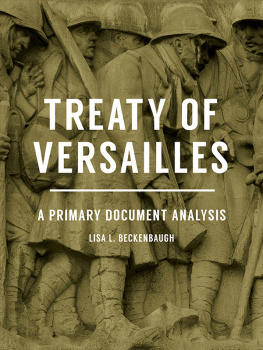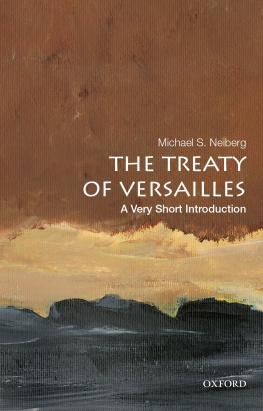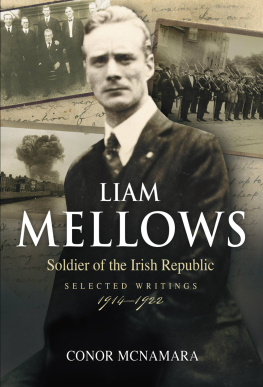
Mchel Fathartaigh is a lecturer and historian based in the Social Sciences Research Centre, National University of Ireland, Galway, and Dublin Business School. His broad-ranging research on both the political and material development of the Irish state has been published widely. This is his fourth book.
Liam Weeks is a lecturer and political scientist in the Department of Government and Politics, University College Cork. His research on Irish politics, about which he has written in The Irish Times , Irish Examiner and Sunday Independent , has won a number of prizes and grants. This is his fifth book.

First published in 2021 by
Irish Academic Press
10 Georges Street
Newbridge
Co. Kildare
Ireland
www.iap.ie
Mchel Fathartaigh and Liam Weeks, 2021
9781788551595 (Paper)
9781788551601 (Ebook)
9781788551618 (PDF)
A CIP catalogue record for this book is
available from the British Library.
All rights reserved. No part of this publication may be reproduced, stored in a retrieval system, or transmitted, in any form or by any means (electronic, mechanical, photocopying, recording or otherwise), without the prior written permission of both the copyright owner and the publisher of this book.
Typeset in Minion Pro 11.5/16 pt
Cover design: edit+ www.stuartcoughlan.com
Irish Academic Press is a member of Publishing Ireland.
Contents
To the spirit of Kate and Michael Galligan
and Sen Mr Fathartaigh, and to
the spirit of them all.
Acknowledgements
W hile it is only our names that appear on the cover of this book, it would not have been possible without the support that was given to us by our colleagues and our friends and families.
At Dublin Business School, we would like to acknowledge John Gunning, Stephen Henderson, Dr Michael Kane, Enda Kilgallon, Dr Heikki Laiho, Dr Tom Madden, Conor Murphy, Matt Nolan, Dr Piotr Sadowski and, especially, Dr Paul Hollywood. At the Social Sciences Research Centre at the National University of Ireland, Galway, we would like to acknowledge Dr Mike Hynes and Dr Tony Varley. At University College Cork, we would like to acknowledge the staff of the Department of Government and Politics.
We are furthermore grateful to professors Slava Jankin Mikhaylov and Alex Herzog for access to the dataset of parliamentary debates, and to them and Dr Hannah Bechara for their assistance with the analysis of this data.
Added to this list must be: Clive Ahern; Cat and Rob Anderson; Professor Frank Barry; Dr Gearid Barry; Professor Gerry Boyle; Dr John Cunningham; Rosie and Fiachra Daly; Dr Emma Dillon; Mary and Maurice Doody; Sarah, Michael, Beth and Patrick Doody; Dr David Doolin; Mary and Malacha Duddy; Anthony Egan; Marta and Con Egan; Grinne and Malte Engels; Professor Diarmaid Ferriter; Kieran Galvin; Conor Gilbride; Ollie Gleeson; the late Professor Leo F. Goodstadt; Alan Gould; Andrew Greaney; Dr Brian Hanley; Joanne Hayes Earl; Anita, John, Anna and Alison Hogan; Alexander Kouker; Arielle and Chris Lindhorst; Ursula McFadden; Audron Medele, Feargal McCauley, Emilia Medele and Noah McCauley-Wilson; Teresa and Colin Moore; Michelle Murphy and Joe Ceallaigh; Aindrias Cathasaigh; Dr Daith Corrin; Dr Martin ODonoghue; Bernie and Davy ODywer; Professor Eunan OHalpin; Sandra, Ciarn and Clare OLeary; Larry OLoughlin; Derek OReilly; Dr Niamh Puirsil; Dr Tara Raftery and Michael ODwyer; the Reilly families in Glenacolly and Gloshpatrick; Brendan Roche; Chris Russon; Peter Treacy; Jean and Ron Weeks; and the Whitehead family in Denver.
At Irish Academic Press, we would like to acknowledge gratefully the initial interest that was shown to our project and the subsequent care and attention to detail that was given to it by Conor Graham, Maeve Convery and Wendy Logue, as well as our editor, Anna Benn.
We would also like to acknowledge gratefully the grant support that this publication received from the College of Arts, Celtic Studies and Social Sciences at University College Cork.
Our greatest debt is, of course, to our immediate families, Margaret, Graham and Caoimhe; Proinnsas agus Mchel, and last, but certainly not least, we are eternally grateful to Lornie and Tara, who more than anyone else have endured our musings on this project over the past few years. We would love to say this is our last word on the Treaty, but they know us better than that. We thank them for their patience.
Cork and Galway, June 2021
Introduction
R atification Day in the United States falls on 14 January, marking the anniversary of the ratification in 1784 of the Treaty of Paris by the US Congress. Even though this was a monumental event in the formation of the United States of America, it is probable that few Irish readers are familiar with either the day or the treaty. Signed by British and US representatives, the treaty marked the end of the seven-year American War of Independence and established the boundaries between the British Empire and the new state. The date that is more celebrated is, of course, 4 July 1776, when the Second Continental Congress issued a declaration of independence from British rule.
That the commemoration of this declaration takes greater precedence than an actual moment of independence bears many comparisons to the Irish experience. The most important date for nationalists in Ireland is Easter Monday 1916, when Patrick Pearse issued a proclamation of independence outside the General Post Office in Dublin. That event marked the beginning of a week-long insurrection that was largely confined to the capital, but which had longer-term repercussions, sparking off a revolutionary war that culminated in a qualified form of Irish independence. This materialised under the Articles of Agreement between Great Britain and Ireland, signed on 6 December 1921, which came into effect as a treaty exactly one year after the signing. Under this agreement, for the first time in over 700 years, the twenty-six counties that were to constitute the Irish Free State would be free of British rule. This event achieved a significant modicum of success in contrast to the celebrated episodes of failure, and yet there is no official day in Ireland to commemorate either the signing of the Treaty or the formation of the state.
For many, the Treaty is associated with failure. Failure to achieve a republic. Failure to achieve full sovereignty and sever the link with the United Kingdom. Failure to establish a thirty-two-county state. Failure to honour the mandate that was given to Sinn Fin in 1918 when it won 70 per cent of seats on the island of Ireland in that years elections to the House of Commons. This understanding, however, is in part built on a mythology perpetuated by those opposed to the agreement, which was sustained through the decades, particularly by the dismantling of the Treaty by its opponents leader, amon de Valera, when he came to office in 1932.
As is shown in this book, a thirty-two-county, fully sovereign republic was never on the cards in 1921, and most of the Sinn Fin leadership knew this. They were content, albeit reluctantly so, to maintain an association with the United Kingdom, as this was the best that could be achieved, and with this relationship some form of an oath was inevitable. While it is correct to say that Sinn Fin had a landslide victory in 1918, taking this one step further to claim that it was a mandate for a republic that the Treaty betrayed requires numerous leaps of imagination. Interpreting public opinion on one issue from a general election result where people vote for parties and candidates across different constituencies is fraught with difficulties. While 1918 was perhaps the most single-issue election ever contested in Ireland, it needs to be recognised that it was held under the first-past-the-post voting system, known to produce radically disproportionate results where seat returns do not match votes won. So, while Sinn Fin won 73 seats out of 105, compared to the Irish Parliamentary Partys (IPP) 4 seats, it won only twice as many votes as its nationalist opponents. More than one in five voted for the IPP, while fewer than half voted for Sinn Fin. Throw into the mix Labours voters not being represented due to its decision to stand aside from the election, and those in twenty-five constituencies (31 per cent of the electorate) not being allowed to exercise their franchise at all due to the lack of candidates willing to oppose Sinn Fin, and it is obvious that 1918 was not a normal election in the sense that we understand these events in the twenty-first century. In any case, transposing contemporary ideas and values onto events over a century ago is a task that should be treated with caution.


